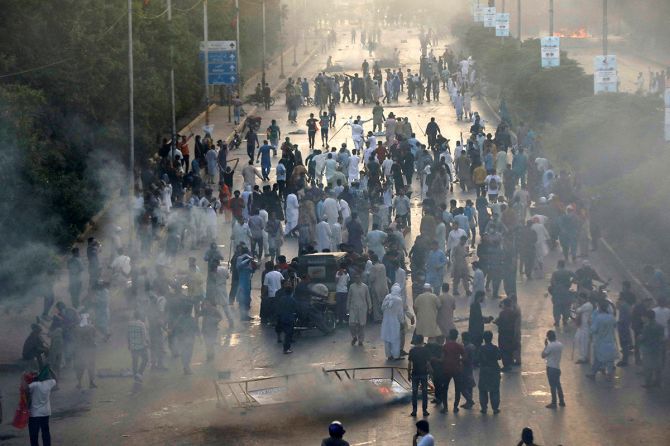The people of Pak-occupied- Jammu and Kashmir (POJK) have once again exposed the repressive tactics of the Paki establishment and the blatant hypocrisy of its media. A fierce protest movement, marked by wheel-jam and shutter-down strikes, culminated in the repeal of a controversial presidential ordinance on Sunday after weeks of determined struggle. Yet, the protests—met with Army-police violence and media blackout—only received coverage after a settlement, allowing pro-establishment media to paint a picture of collective triumph while ignoring the brutal suppression faced by protestors.
For days, POJK residents braved police brutality, blocked key entry points like Kohala Bridge, and stood their ground against attempts to force Pakistani flags onto their vehicles. The protests highlighted the growing resentment among residents against Islamabad’s colonial-style governance, which continues to treat the region as a mere pawn in its geopolitical ambitions.
The controversial “Peaceful Assembly and Public Order Ordinance, 2024,” is a draconian tool to crush dissent, was at the center of the unrest. The ordinance sought to suppress peaceful assembly and free expression—fundamental rights of the people. Despite the POJK Supreme Court’s suspension of the ordinance earlier this week, the protesters demanded its complete repeal and an end to the oppressive measures it represented.
After prolonged negotiations, the occupying- govt conceded to the 16-point demands put forth by the Jammu and Kashmir Joint Awami Action Committee (JAAC). These included withdrawing the ordinance, releasing all prisoners, canceling FIRs filed since May 2023, reinstating dismissed employees, compensating victims of violence, and addressing issues related to electricity tariffs and infrastructure damages. The agreement also included a promise to hold student union elections and implement a Charter of Demands within six months.
While the settlement marks a victory for the people of POJK, it comes at a heavy cost. Violent clashes between police and activists left at least three people dead and dozens injured. Businesses, medical services, and public transport came to a standstill during the strikes, reflecting the depth of public frustration with Islamabad’s heavy-handed policies.
POJK’s struggle is a stark reminder of the Paki establishment’s colonial mindset toward its so-called “autonomous” territories. Islamabad has long exploited the region, plundering its resources, imposing heavy tariffs, and disregarding the needs of its people. The protests are not just about one ordinance but a broader rejection of decades of systemic neglect and repression.

